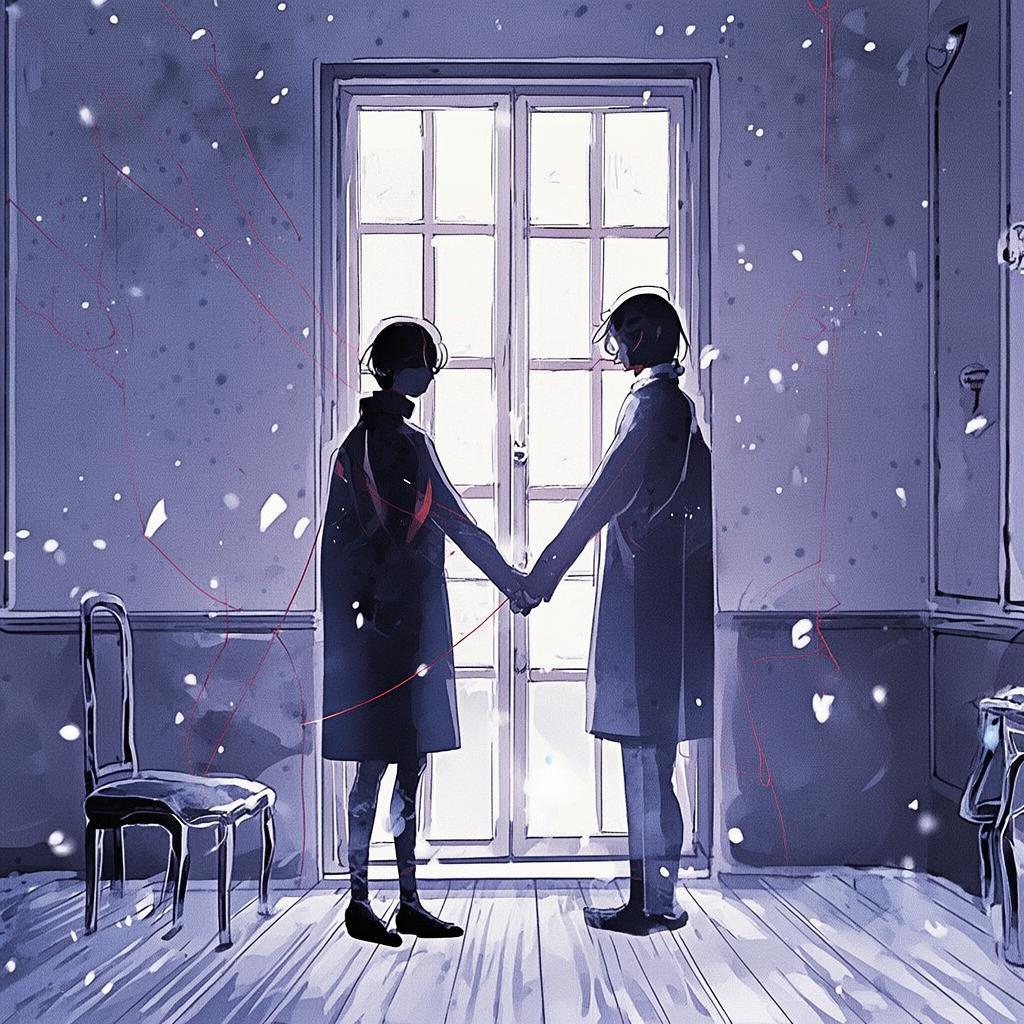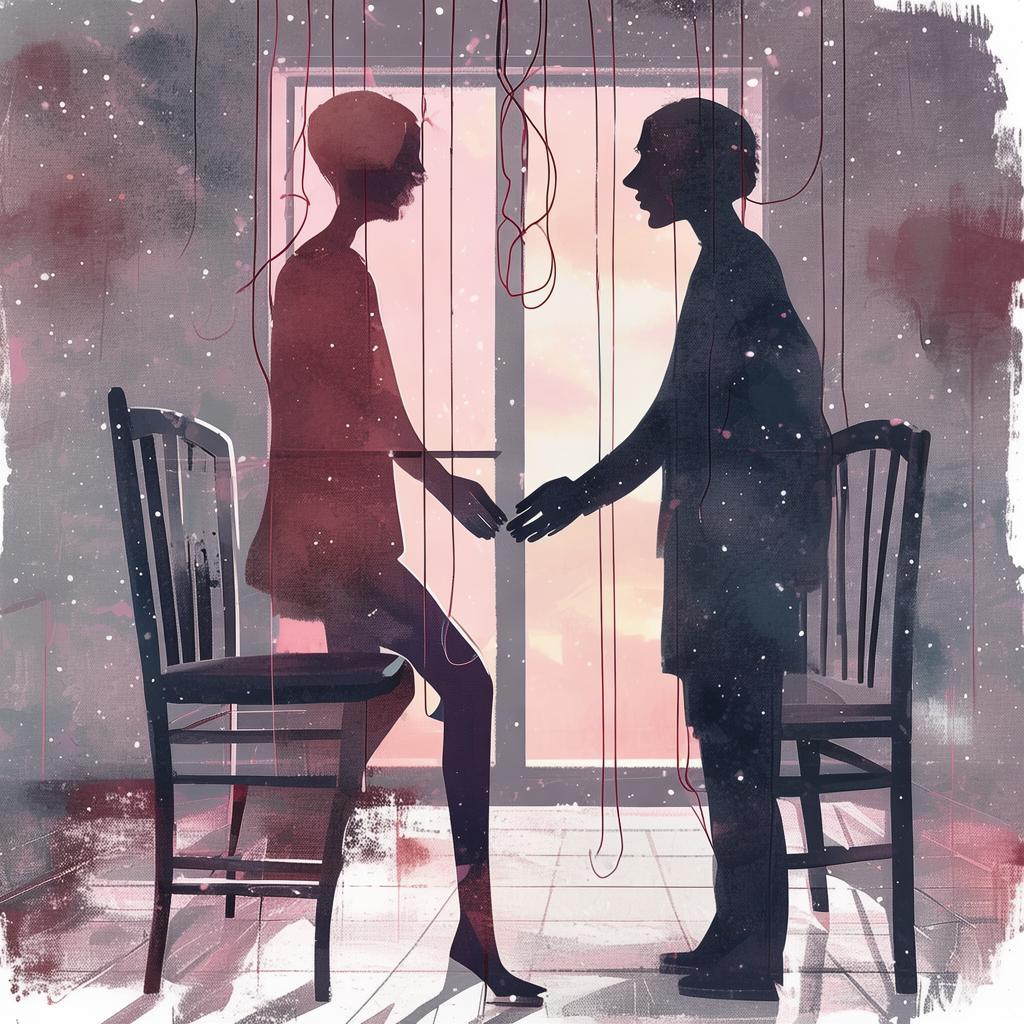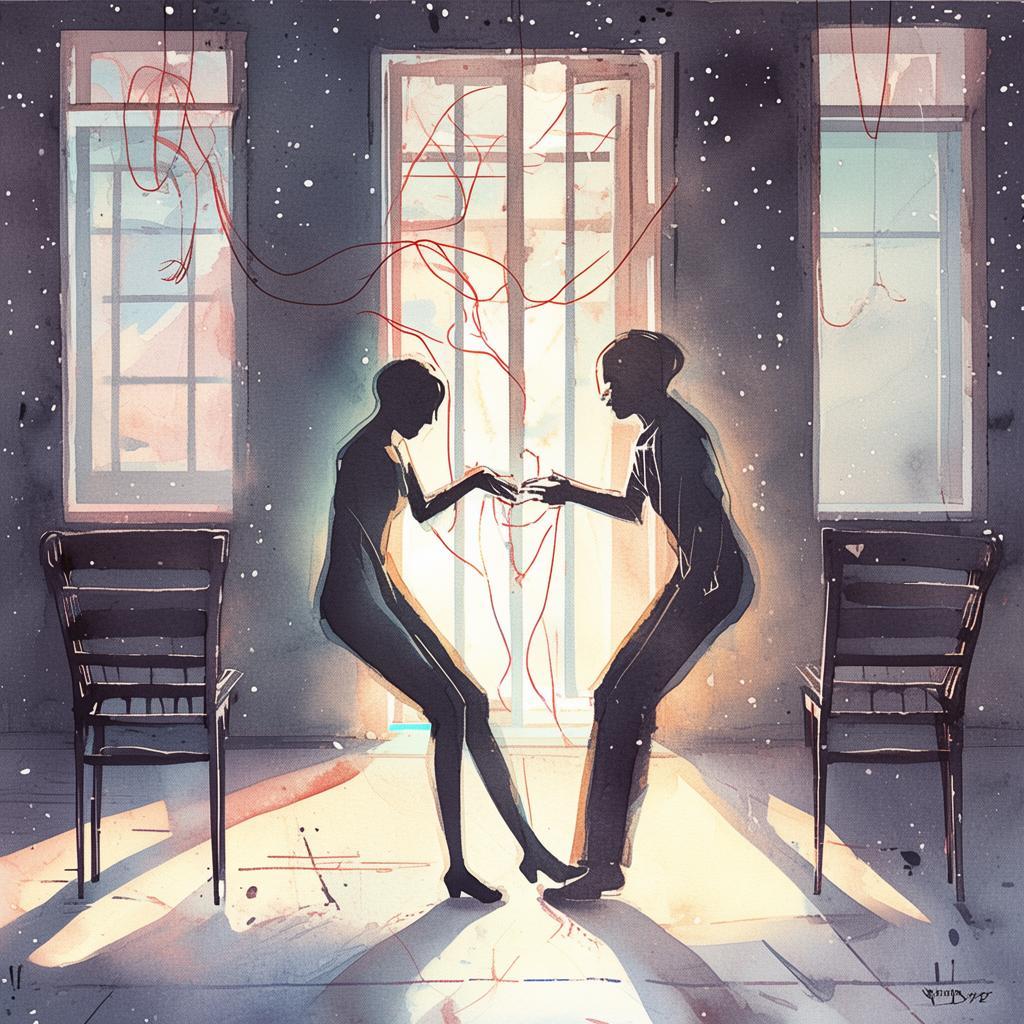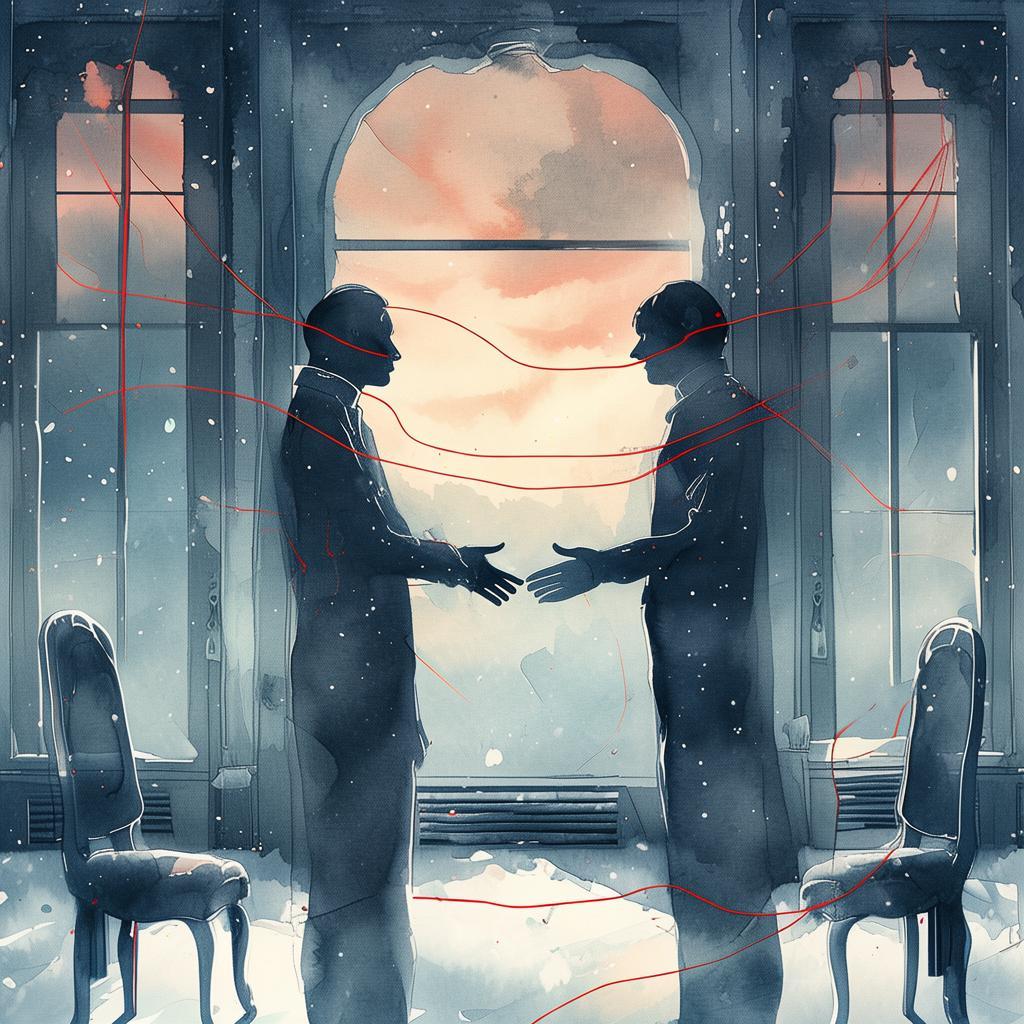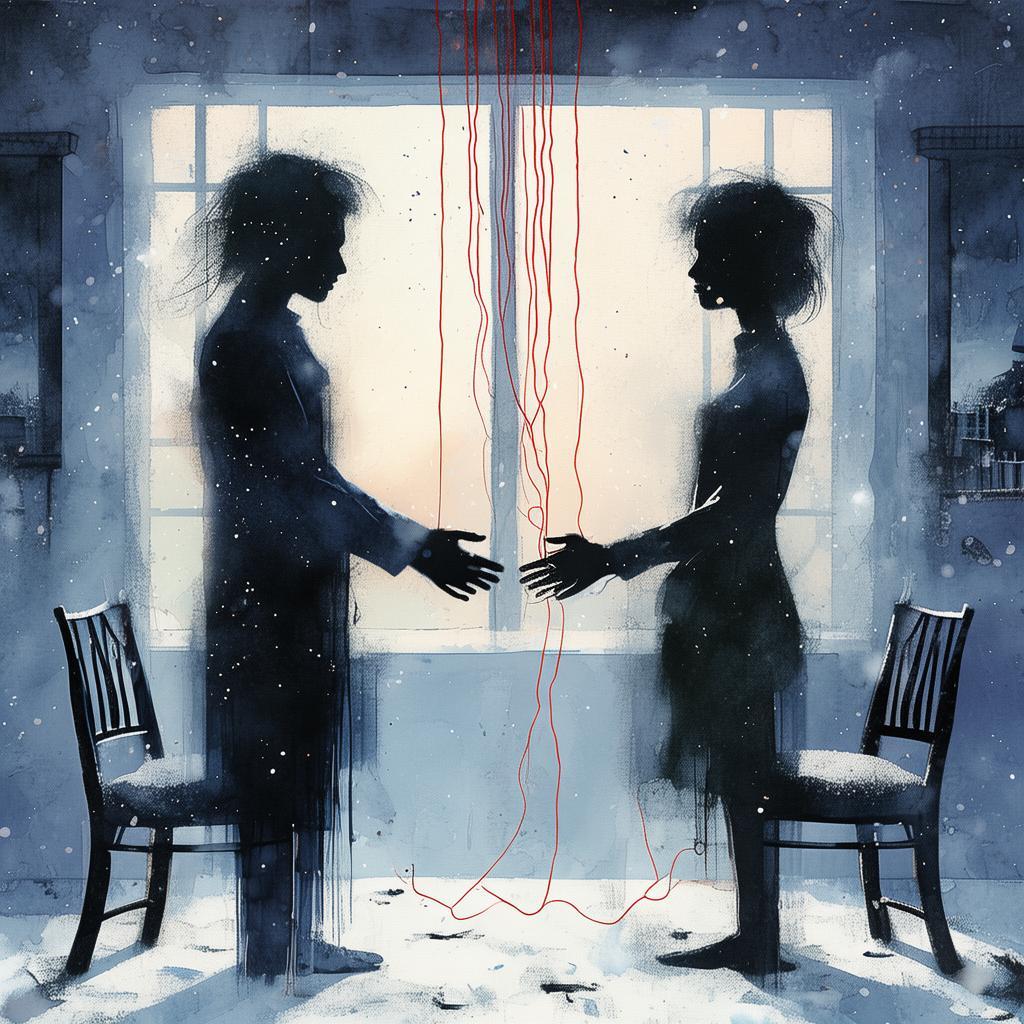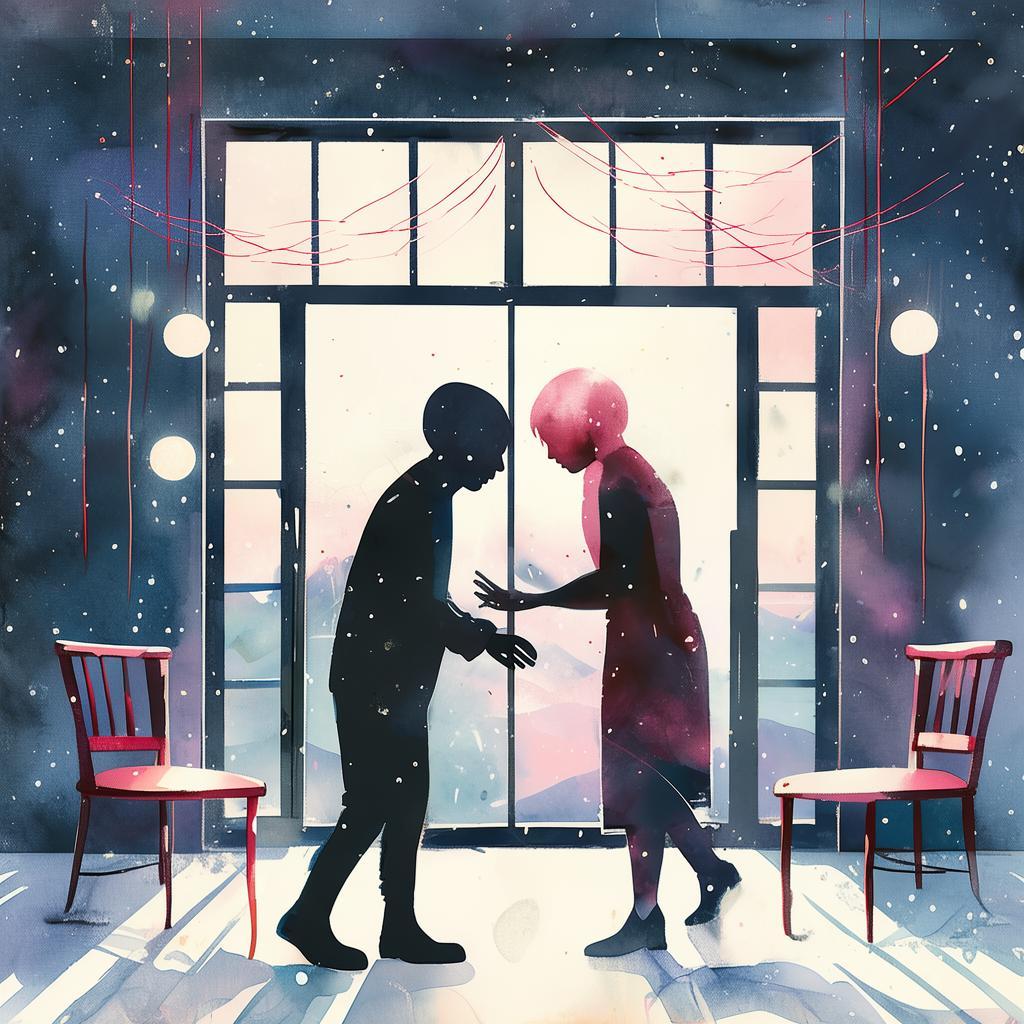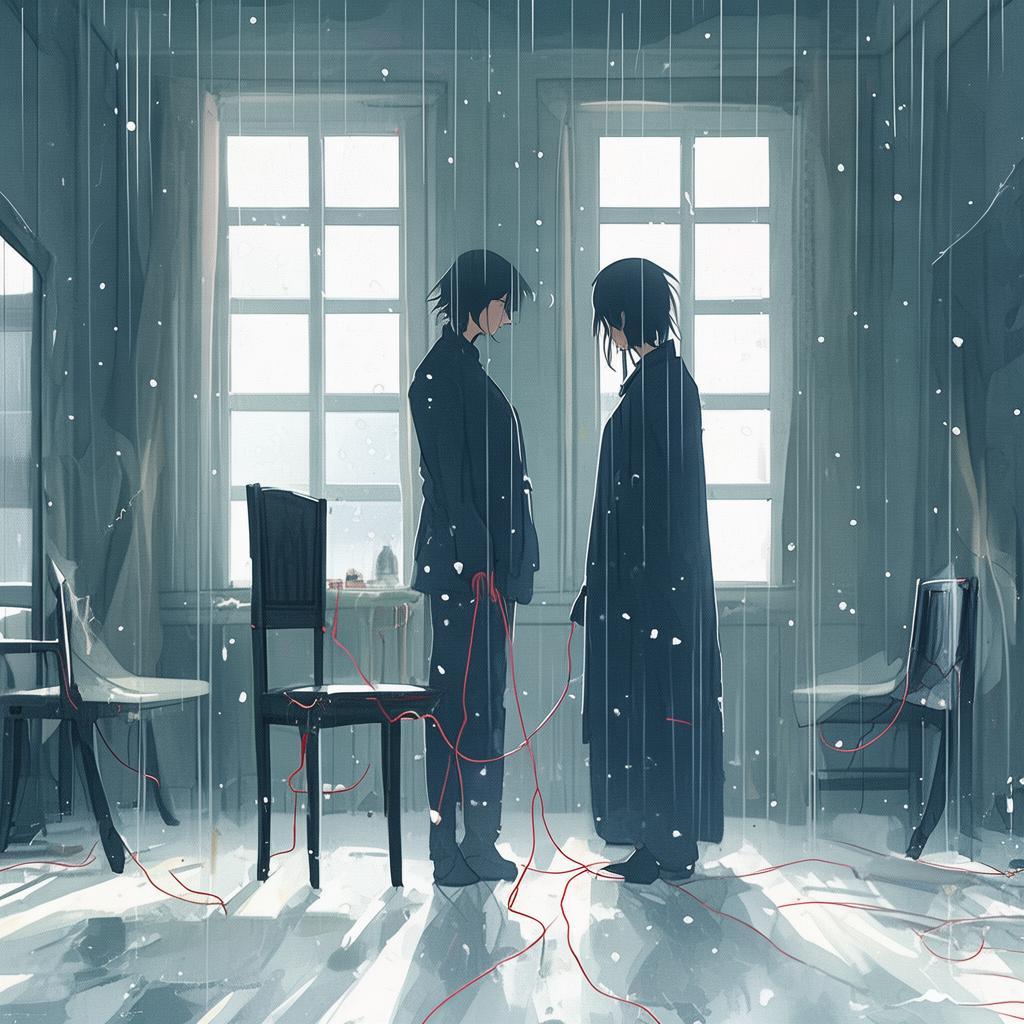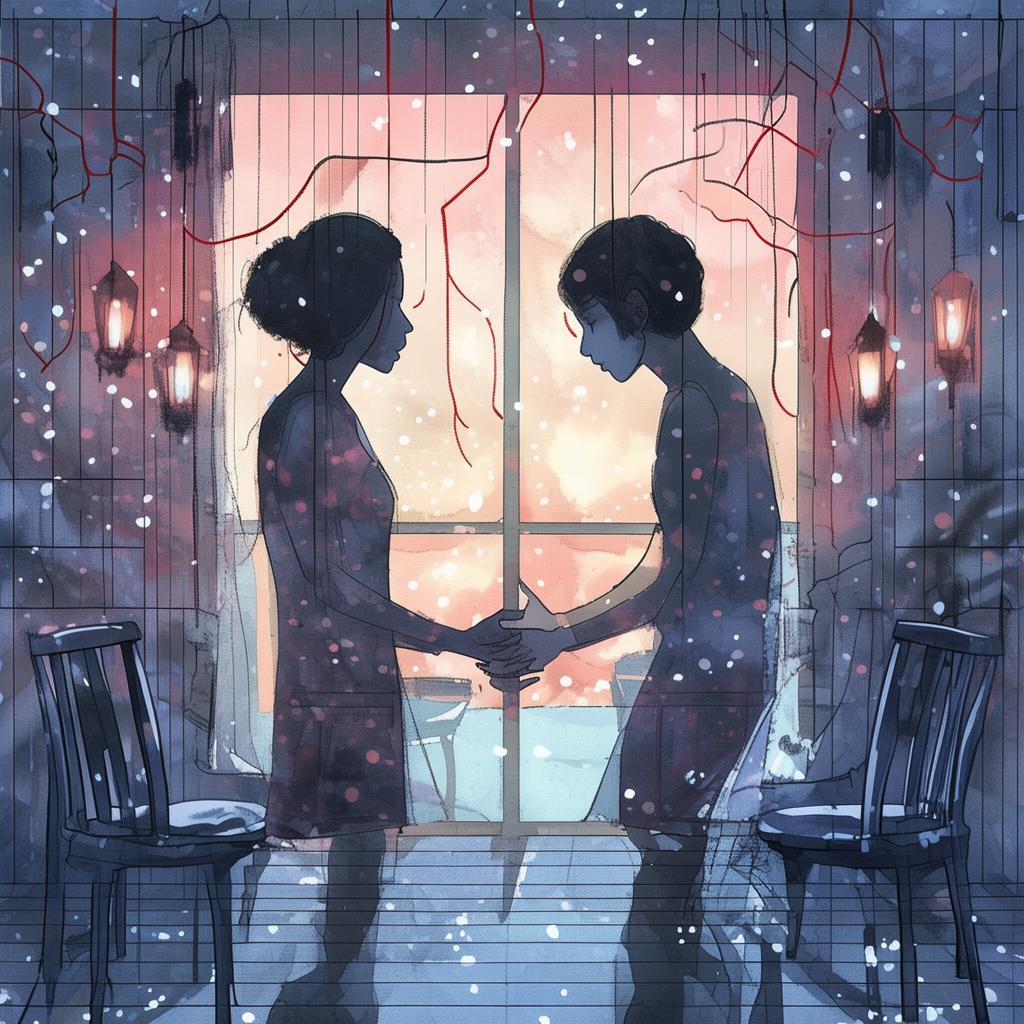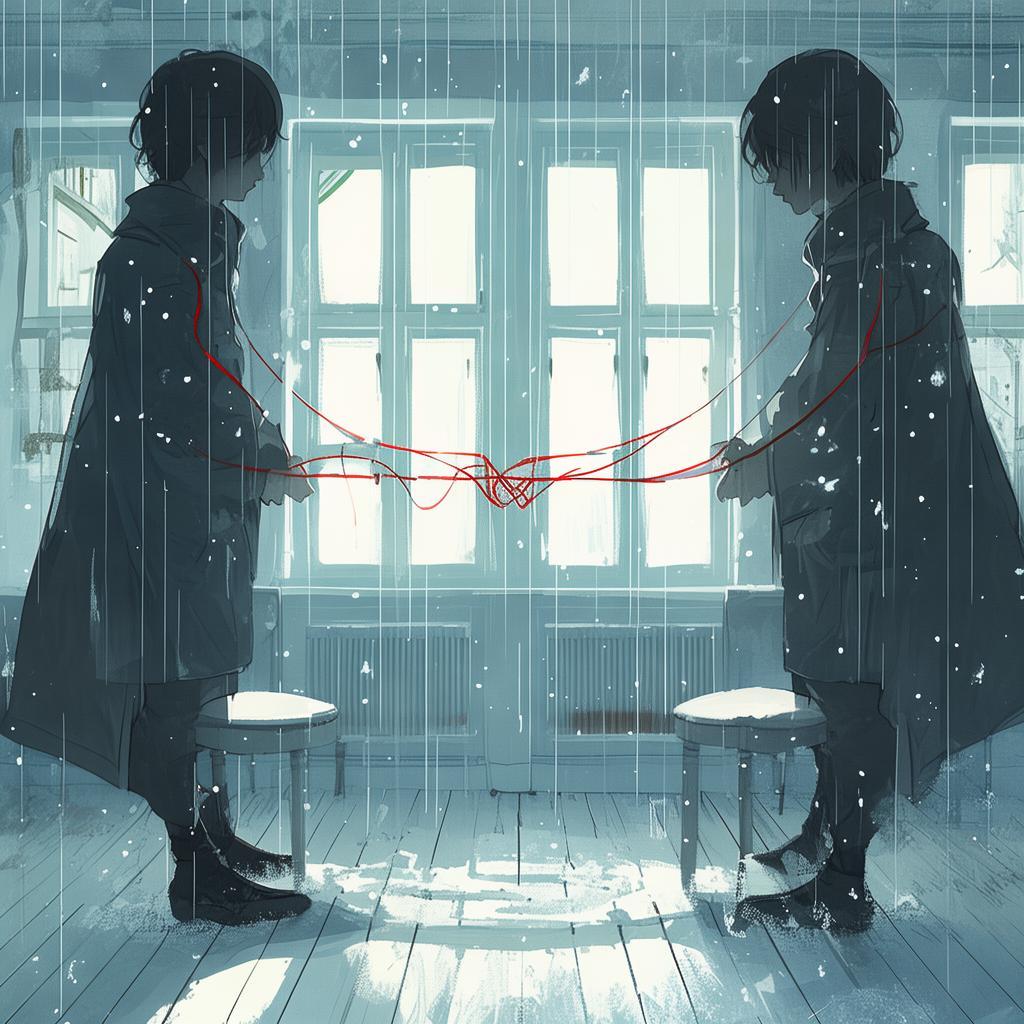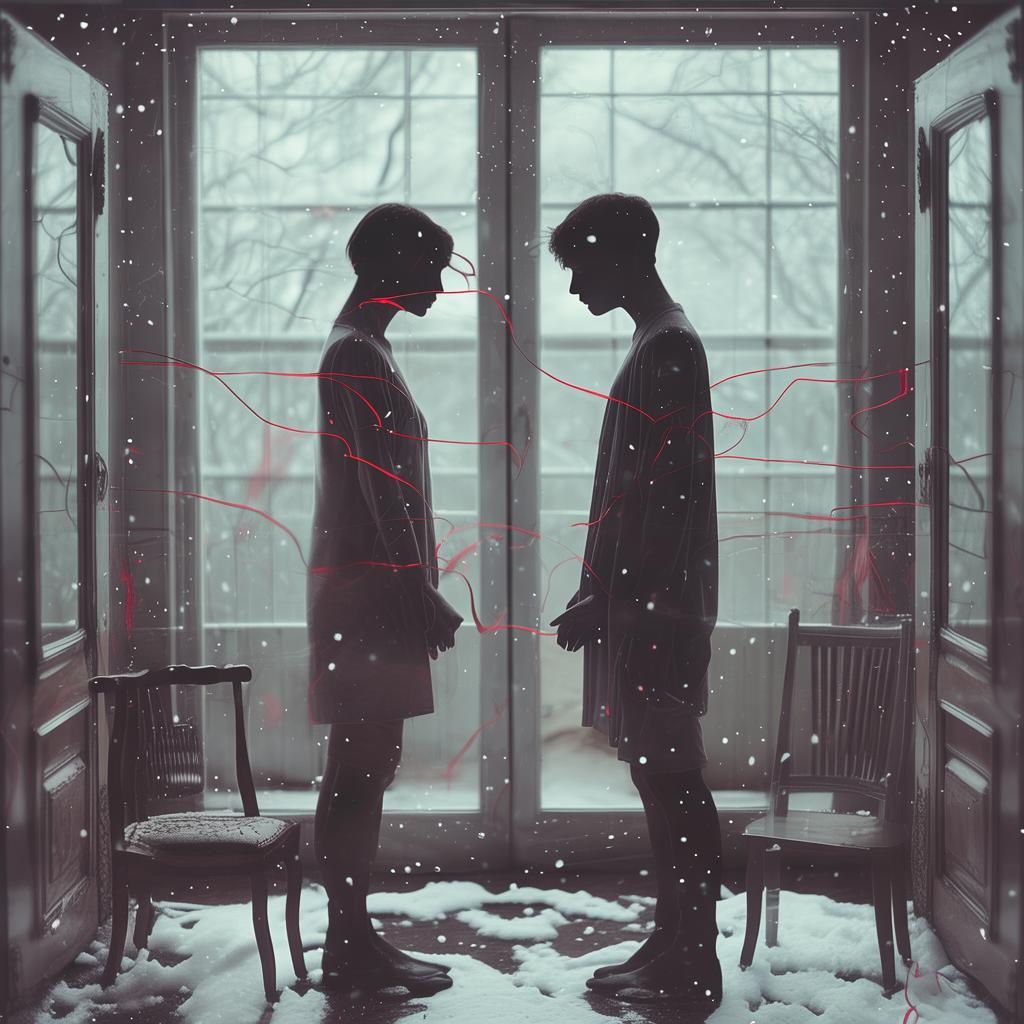The Duality of the Dystopian Throne
In the heart of the dystopian city of Elysium, where the sky was perpetually shrouded in a smog of despair, two brothers stood as the last remnants of a fallen dynasty. Prince Kael, the elder, was the stoic guardian of the city, his presence a bulwark against the encroaching chaos. Prince Lior, the younger, was a rogue with a heart as wild as the wastelands outside the city walls, his eyes reflecting a world he longed to change.
The throne, a symbol of power and control, was the prize they both sought, but it was also a trap. The city was governed by a council of elders, each with their own agendas and loyalties, and the throne was a seat of immense responsibility and danger. Kael and Lior had been groomed from birth to vie for the throne, their bond a fragile alliance between duty and desire.
The night of the council's grand assembly was to be the turning point. The elders had decreed that the next heir would be chosen by a series of trials, and the brothers knew that betrayal would be the currency of the game. Kael, with his calm demeanor and strategic mind, was the perfect candidate to outmaneuver the elders. Lior, with his fiery spirit and unyielding will, was the wildcard that could ignite the city into rebellion.
As the assembly began, the air was thick with tension. The elders took their seats, their faces painted with the lines of age and power. The brothers stood before them, their expressions a mask of composure.
"Prince Kael," the elder spoke, his voice a baritone of authority, "you have proven yourself a capable leader. However, you must now face the first trial."
The trial was a riddle, a puzzle wrapped in riddles, designed to test the intellect and resolve of the heir. Kael approached the puzzle, his fingers tracing the intricate patterns. He solved it quickly, his mind a whirlwind of logic and reason.
The elders nodded in approval, but Lior's eyes were fixed on the puzzle, a flicker of envy dancing within them. He had always been the one to solve riddles, to see the hidden truths in the most complex situations. The elders had underestimated him, and he would not let them win this round.
The second trial was a test of strength, a battle to the death between Kael and Lior. The elders had expected Kael to win, but Lior's ferocity was unmatched. The brothers fought with a ferocity that left the crowd gasping, their swords clashing with a sound that echoed through the hall.
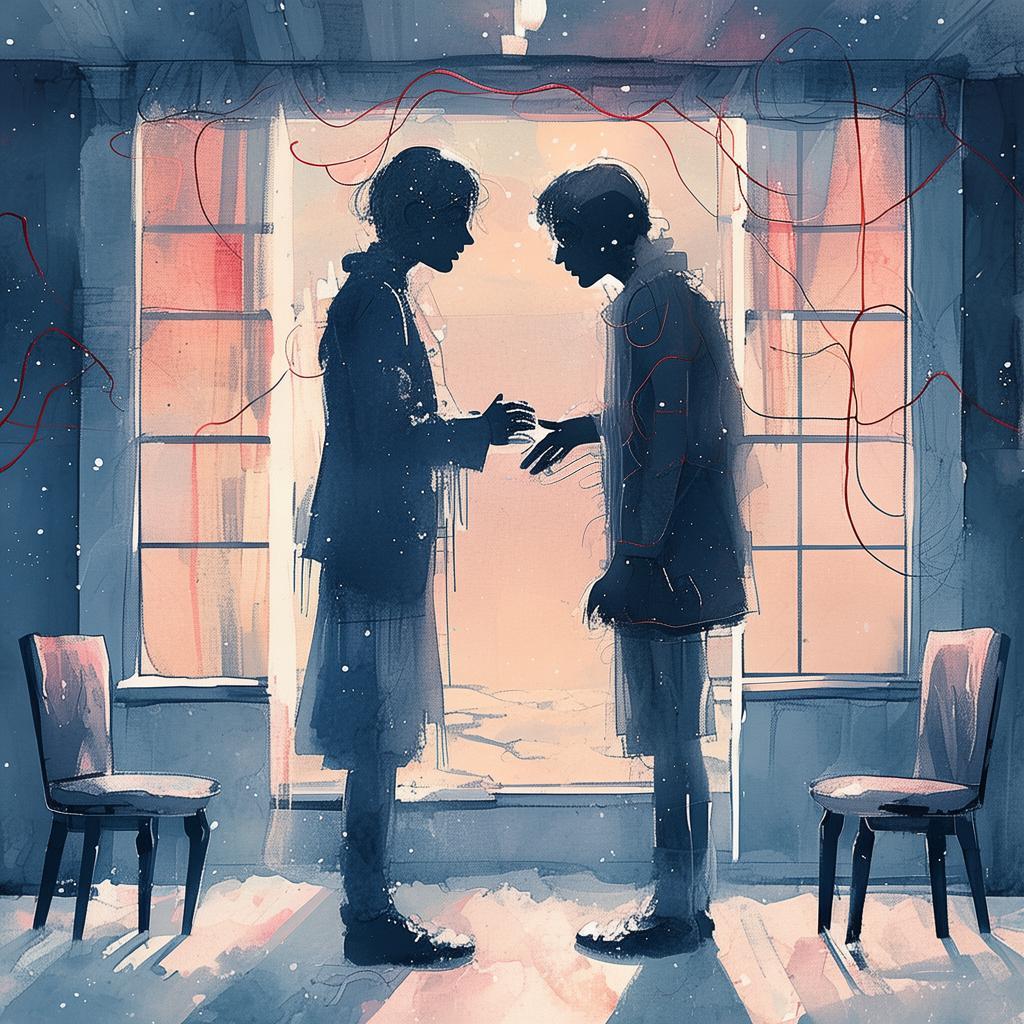
As the battle raged on, Lior found himself grappling with a deeper question: Could he truly kill his brother for the throne? The love they shared was as real as the blood that stained their hands, and the thought of losing him was more painful than any wound.
In the end, it was Kael who emerged victorious, his arm weary but his spirit unbroken. The elders declared him the new heir, and the city celebrated his triumph. Lior, however, felt a hollow victory. He had won the battle but lost the war, his brother's heart forever altered.
The night after the celebration, Lior found Kael in the throne room, the elder's eyes now upon them with a mix of curiosity and fear. "You have done well, Prince Kael," the elder said, "but remember, power is a double-edged sword."
Kael nodded, his eyes reflecting the weight of his new responsibility. "I will do my best to lead Elysium with wisdom and compassion."
Lior stepped forward, his voice low and urgent. "But what of our bond, Kael? Can we not rule together, as brothers?"
Kael turned to him, a pained expression crossing his face. "Lior, the throne is a burden that can only be carried by one. I must do this alone."
Lior's heart broke at the words, but he knew his brother was right. The throne was a symbol of power, and power could corrupt even the purest of hearts. Lior would have to content himself with watching from the shadows, his love for his brother a silent vigil.
As the years passed, Kael ruled with a hand that was both firm and fair, but Lior's spirit never truly recovered. He wandered the wastelands, his heart a hollow shell, a reminder of the love that had once filled his chest.
One day, as Lior sat by the river, watching the water flow, he heard a voice call his name. He turned to see Kael, his brother, standing on the riverbank, his face etched with lines of worry.
"Kael," Lior whispered, his voice a mixture of shock and sorrow.
Kael approached, his eyes filled with regret. "Lior, I have failed you. I have failed us."
Lior stood up, his heart pounding with a mix of fear and hope. "But we can still be brothers, Kael. We can still fight for a better world."
Kael nodded, his eyes alight with a newfound determination. "Yes, Lior. We can still fight."
And so, the brothers, bound by blood and duty, set out once more to challenge the elders and reclaim their city. The path was fraught with danger, but their love was their greatest strength, and together, they would face whatever lay ahead.
The Duality of the Dystopian Throne was a tale of love and power, of brothers bound by blood and separated by duty. It was a story that would echo through the ages, a testament to the enduring strength of family and the unyielding spirit of hope.
✨ Original Statement ✨
All articles published on this website (including but not limited to text, images, videos, and other content) are original or authorized for reposting and are protected by relevant laws. Without the explicit written permission of this website, no individual or organization may copy, modify, repost, or use the content for commercial purposes.
If you need to quote or cooperate, please contact this site for authorization. We reserve the right to pursue legal responsibility for any unauthorized use.
Hereby declared.
